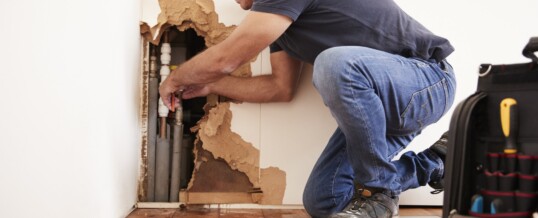
The percentage of homes with basements is on the decline. In 2000, nearly 40% of homes built that year came with at least a partial basement. In 2021, that figure dropped by almost half to only 21%.
Maryland is one of the lucky states where basements are common. Unluckily, however, is the fact that basements often come with leaks. So, what are you supposed to do when you find water in the basement?
First thing first: you have to identify where the water is coming from. Water seepage in the basement could be due to many issues, including rainwater, broken piping, and appliance leaks.
Once you identify the source of the moisture, you may be able to DIY a quick fix. But in most cases, basement leaks and flooding require professional assistance. Learn how to tell the difference in this guide.
What to Do If There’s Water in the Basement from Appliance Leaks
You can tell the water in your basement is from leaky appliances if you see one or more of the following:
- Water puddled behind or around the appliance(s)
- Rotten, saggy floors beneath or around the appliance(s)
- Mold on the walls behind or beside the appliance(s)
A leaky appliance can be a quick and easy fix. Simply use plumber’s tape to tape up the hole in the pipe. If this DIY repair job doesn’t work, though, consider getting your appliances professionally repaired or replaced.
What to Do If There’s Water in the Basement Due to Broken Pipes
Watermarks, mold, and puddles in the basement can be a sign of an appliance leak. But it could also mean there’s a broken pipe somewhere in your basement. To tell the difference: here are some other signs to watch for:
- Water pressure disruptions throughout the home
- Brownish water with rust particles in it
- Water that smells bad or like rotten eggs
- Dripping noises in the walls
- Loud clanging noises in the walls
- Increased water bills
Turn off your water supply immediately any time you suspect a broken pipe in your home. If the leak has the potential to mess with any wiring in your house, shut off the electricity, too.
It is virtually impossible to repair broken pipes unless you are a professional. For these types of leaks, call a plumber ASAP to prevent more busted pipes.
What to Do If There’s Water in the Basement After Rain
Maryland has above-average rainfall for a US state. The average annual rainfall here is about 59 inches per year. And we all know the summertime is the worst time for rainstorms.
As such, rainstorms commonly cause basement floods in Maryland. However, the exact source of the leak could be any of the following.
Sump Pump Leaks
Only homes with basements have sump pumps. These devices collect excess water from your basement. Once the water level in the sump pump reaches a certain level, the pump will activate and drain the water into your storm drain.
A defunct or subpar sump pump can be a major problem for your basement. You may be able to replace a broken sump pump on your own. In many cases, the pump just needs servicing, in which case you should call a repairman.
Basement Wall and Window Leaks
Even if your sump pump is working correctly, rain can still get into your home through cracked walls or leaky windows. Luckily, both of these issues are a quick DIY job.
You can seal up cracks in your basement walls yourself with hydraulic cement. Caulk containing silicone latex is an excellent tool for resealing your windows. It will keep out moisture with the added benefit of deterring pests.
Exterior Drainage Leaks
Is your basement leak accompanied by soggy and wet patches in your yard? If so, you are probably dealing with an exterior drainage issue. As with leaky pipes, shut off the water in your home.
Exterior drainage leaks typically require professional attention. This is especially true if you suspect the water is coming from your sewage, as this type of leak can be hazardous to your health.
Tips for Keeping Your Basement Dry Long Term
We hope you understand where the water in your basement is coming from by now. Before you go, check out our top tips for keeping your basement leak-free for the long haul.
Address Water Damage Promptly
Failing to address the source of the water in your basement can lead to further damage, increasing the risk of future leaks. This is why it is critical to repair the source of the leak ASAP once you identify it.
If you can not identify the source of the water coming into your basement, call a basement repair man who can.
Minimize Your Risk of Basement Floods
There are a few things to add to your annual home maintenance checklist to keep your basement moisture-free. For example, make sure to schedule frequent sump pump maintenance and foundation inspections.
Doing these things will not only save your basement. It will also keep you from potentially paying for expensive repairs in the future.
Get Professional Basement Waterproofing
Leaks happen. The only surefire way to keep them from ruining your basement and the items you store in it is with waterproofing. A high-quality basement waterproofing system can fix all of the issues we’ve talked about so far.
At Armored Basement, we specialize in sump pumps, basement drainage systems, and waterproof wall liners to keep water out once and for all.
Water in the Basement: Who to Call?
Water in the basement could be a sign of leaky appliances, busted pipes, and more. The only surefire way to stop water from damaging your basement once and for all is with a high-quality waterproofing system.
Are you searching for ‘basement waterproofing services near me’? Armored Basement serves Baltimore and Rockville, Maryland. Contact us today to schedule a free basement inspection!
ShareMAR
